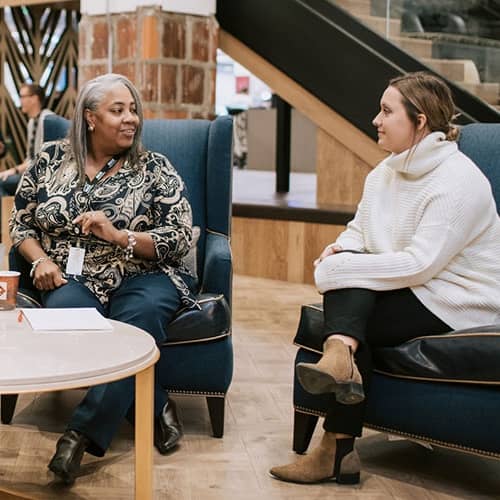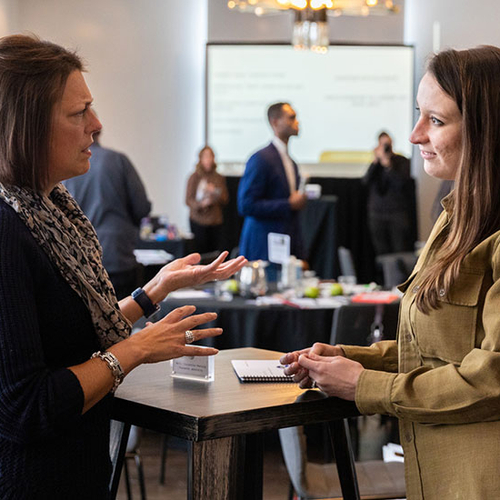It’s all in the prep: Tips and tricks on hosting effective meetings
Author:
Lesley Dewitt
Mar 19, 2020
•3-minute read

Hosting a meeting? Whether you're a beginner or been there, done that, use these tips for relevancy, preparation, facilitation and follow up to take your meeting game (and reputation) to the next level.
First and foremost, don't schedule unnecessary meetings. Start with a clearly defined and actionable objective, then ask yourself the following questions:
- What would be the consequence for not having the meeting?
- Is it likely that the required attendees will be available?
- When it's over, how will I judge whether it was successful?
- Are there other communication channels that are better suited to achieve my objective?
More than likely, your responses to these questions will substantiate or negate the need for a meeting.
Create an agenda
Feeling confident that your meeting is relevant? Great! Set yourself up for success with some thoughtful preparation; refer back to your objective and create an agenda with discussion points and decisions required to meet the objective. Depending on the scope of the objective, you might want to review the agenda with key stakeholders or your team leader for feedback and input on suggested attendees.
Don't forget to accommodate
When scheduling the meeting, be sure to consider your attendees' schedules and the availability of rooms and equipment required to facilitate your agenda. If possible, book the room prior to the start of the meeting so that setup doesn't cut into the actual meeting time.
Even if you're not expecting remote attendees, it's always a good idea to accommodate them in your planning to account for potential travel or work from home situations. Video conferencing is ideal if available, but at a minimum, you should incorporate a conference line and screen sharing capabilities.
If schedules allow for flexibility, schedule meetings requiring creativity in the afternoon and analytical meetings in the morning to align with predictable patterns in mood and mental capacity. Include the agenda and any relevant reference material in the meeting invitation and allow attendees ample time to absorb the information and prepare.
Steer the conversation
Now that you've got the logistics and prep down, let's focus on what it takes to facilitate the meeting. Hopefully you booked the conference room early for setup. If not, ask someone to help with this while you kick off the meeting so the group can get started on time. While you're at it, ask someone else to capture notes so you can focus on facilitating the discussion and following the agenda. Start the meeting by setting expectations of 100% participation. That means laptops closed and phones down. As a facilitator, you shouldn't be doing the majority of the talking. Try to get everyone in the room engaged in the conversation and ask probing questions to provoke details. As action items arise, make sure they're captured in the notes and associated with who is responsible and when the action item will be completed. If conversation strays from the agenda, acknowledge the feedback, include them in the notes, suggest a separate future discussion to address them and steer the conversation back to the agenda at hand. During the meeting, scan the room for cues of distraction and disengagement; this will provide insight for planning your next meeting. Be mindful of the clock and use 5 minutes at the end of the meeting to recap and review action items. Be respectful of participants' other commitments and end the meeting on time.
Recap the meeting
Follow up by sending out a recap within 24 hours of the meeting. If notes were captured on a white board in the room, sometimes it's acceptable to snap a picture and send that as the recap. Asking for feedback from attendees after the meeting is a great way to continuously improve your meeting skills. And don't forget to reach out to remote attendees to get feedback on the experience from their perspective.
Meetings don’t have to be long, drawn out, passive means of connecting and collaborating with others. With some upfront preparation and seamless logistics, you can turn any meeting into a meaningful touchpoint for all participants.
Lesley DeWitt
Lesley DeWitt is a Senior Campaign Manager on the Rocket Mortgage Talent Brand Marketing team and a former Technology team member. She’s a mother of five, attends classes at Wayne State University and is a firm believer that every second counts.
Related resources

3-minute read
The Leader To Leader program
At most companies, training and personal development tend to stop once you reach a certain level of leadership. Leaders are often expected to find their own development resources outside of the company. This is especially common among senior leaders or leaders o...
Read more

5-minute read
How to be an awesome digital product manager
What do digital product managers do? And what does it take to succeed in the role? Read on to find out.
Read more

3-minute read
Tips from a Software Architect
Hear tips from one of our Software Architects on what it takes to succeed.
Read more
